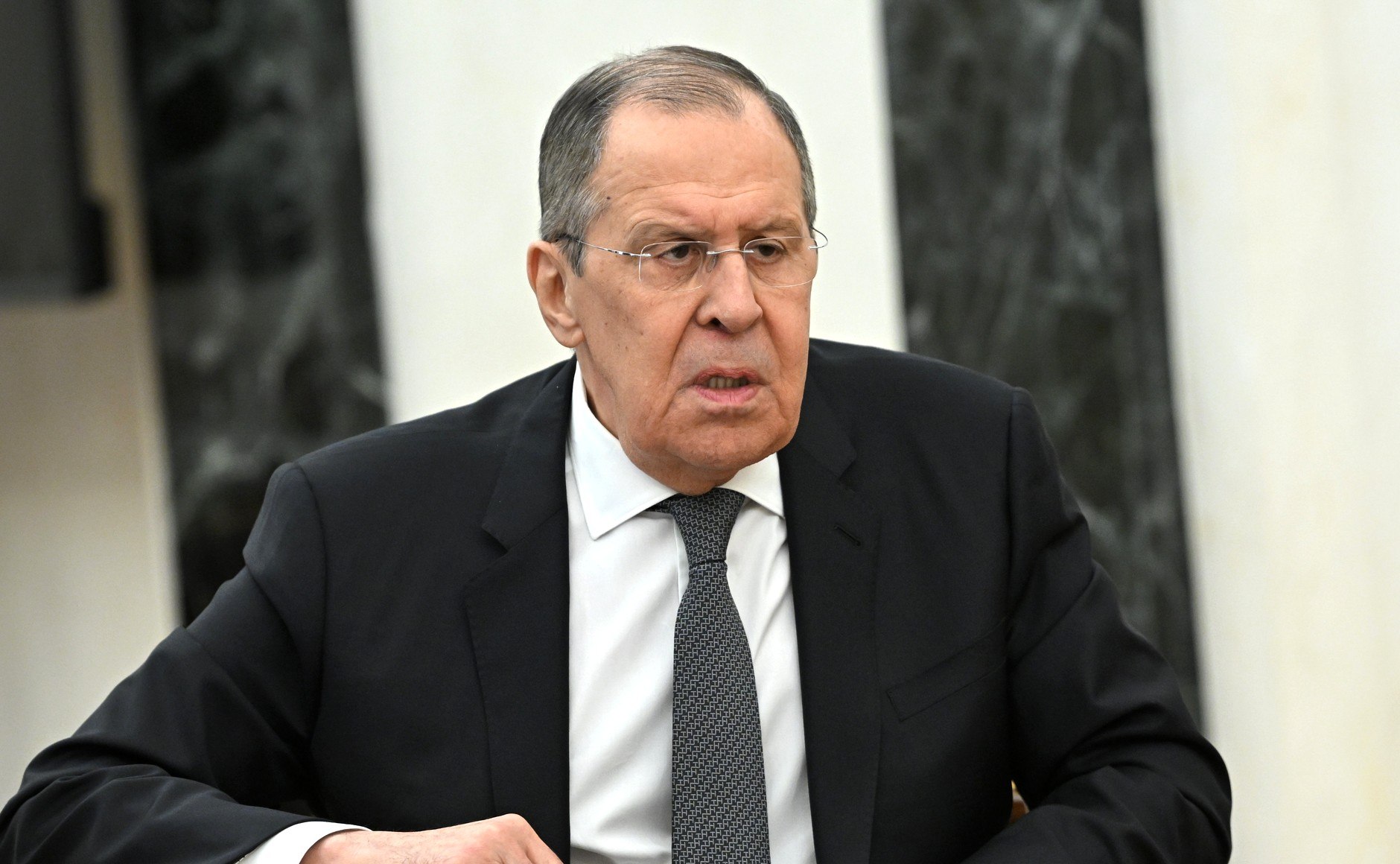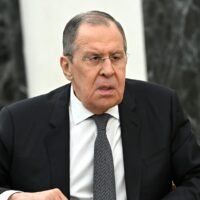


































































Photograph Source: Kremlin.ru – CC BY 4.0
Russian Foreign Minister Sergei Lavrov told an NBC interviewer last week that the expansion of the North Atlantic Treat Organization was a “violation of Russian security interests” and one of the “root causes” of the war against Ukraine. Russian officials have made these statements in their private meetings with American counterparts, but this is the most explicit public statement since the start of the war three and a half years ago. The conventional wisdom in the United States does not accept NATO expansion as a cause of the war, but I’ve been arguing since the war began that there was such linkage.
Lavrov’s comments make it clear that an end to the war with Ukraine include security guarantees for Russia as well as for Ukraine. It’s unlikely that anyone in the Trump administration understands this linkage, which means that the war is not about to reach a negotiated solution. The United States simplistically blames only President Vladimir Putin for the start of the war, but no Russian leader would have accepted the extensive U.S. and NATO buildup on Russia’s western border.
Lavrov has been critical of Trump’s failure to discuss specifics of a negotiated end to the war, which is typical of Trump’s lack of process in dealing with difficult geopolitical issues. When asked about security guarantees, Trump responded that “We haven’t even discussed the specifics.” Trump still proclaims that he doesn’t know which side to blame for the start of the war. His most absurd statement regarding the war: “We’ll know which way I’m going, because I’m going tot go one way or the other,” he told reporters last week.
In addition to limits on Ukraine’s military buildup and the occupation in Ukraine by western forces, the Russians will push for limits on Western troops based in East Europe, an end to the deployment of a regional missile defense system as well as an end to the permanent deployment of German troops in such Baltic states as Lithuania. Russia will press for limits on U.S. bases in Poland and Romania as well. Even before the war began, Putin in December 2021 proclaimed that Russia demanded talks on the NATO threat to Russian national security.
Lavrov also stated that Ukraine has the “right to exist,” but only if it stops the cultural and linguistic limits on ethnic Russians and Russian speakers who the Kremlin believes “belong to Russian culture.” The majority of the population on the Donbas is ethnic Russian. For the past 30 years, Russian leaders have claimed it is their “duty” to protect those who share the values of the Russian language and the “Russian world” (“Russkiy mir”). Moscow uses the term “near abroad” to defend its support and protection for Russian ethnics throughout the former Soviet empire. Kazakhstan, with its large ethnic Russian population could be a target of similar Russian expansionism.
The Trump administration and U.S. policymakers in general do not seem cognizant of the fact that actions Washington has taken over the past 25 years in East and Central Europe are threatening to Russia. Since the collapse of the Soviet Union in 1991, every U.S. administration has taken advantage of Russia’s national security weakness to expand the U.S. role in the region. Presidents Clinton and Bush ignored warnings not to expand NATO.
Clinton was also responsible for NATO’s bombardment of Serbia 1999 without a UN mandate and without touching base with the Kremlin, which has had a special relationship with Serbia for generations. The Bush administration was a strong supporter of the “color revolutions” in Georgia and Ukraine, where Putin believed there was a strong U.S. and CIA covert role. It was the provocative actions of the Georgian government in disputed territories that led to brief Russian military intervention in 2008. Bush clearly overplayed his hand in threatening Russia by pursuing a special relationship with a strongly nationalistic Georgia.
Bush overlooked the warnings from German Chancellor Angela Merkel to avoid encouraging NATO membership for Georgia and Ukraine. The hardliners in the administration backed off somewhat, but only reluctantly. Bush’s forever wars in Iraq and Afghanistan were perceived as threatening to Moscow because they contributed to greater insurgency and terrorism in areas close to Russia’s borders. The United Sates could have pursued diplomacy to coordinate actions with Russia in these areas, but no U.S. administration was willing to take Moscow seriously in view of Russia’s political, military, and economic weakness. Putin actually offered significant assistance to the United States in the wake of the 9/11 attacks in New York and Washington,
Meanwhile, U.S. policymakers and political analysts as well as the mainstream media totally dismiss the idea that NATO expansion had anything to do with Russia’s use of force. The New York Times and the Washington Post particularly dismissed the idea that “NATO provoked Russia’s invasion.” Again, the conventional wisdom was that Russia was engaging in an “illegitimate response to the hostile actions of a democracy.”
There is good reason for Moscow to believe that the expansion of NATO was a marker of Washington’s return to containment and a threat to its national security. Russia was angered about the expansion from the outset, particularly since President George H.W. Bush and Secretary of State James Baker had assured their Russian counterparts that the United States would not “leap frog” over Germany if the Soviets pulled their 380,000 troops out of East Germany in order to reunify the German state. The past five administrations have pursued a policy of militarism in Europe toward Russia. Contemporary foreign policy experts anticipate a Putin threat to NATO beyond the threat to Ukraine, which portends greater U.S. pressure on Russia. Meanwhile, NATO expansion virtually ensures that a Cold War will exist between the West and Russia for the near future.
The post Russia’s Foreign Minister Cites NATO Expansion as Cause of Ukraine War appeared first on CounterPunch.org.
This post was originally published on CounterPunch.org.